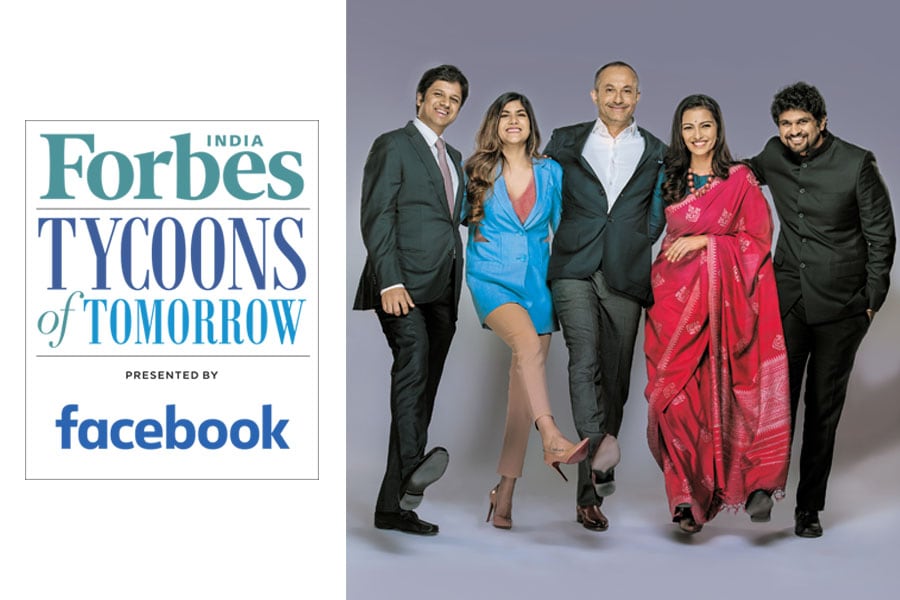
Tycoons of Tomorrow: Torchbearers of the future
Forbes India Tycoons of Tomorrow is a selection of those who will define the future of India

The individuals appearing on our inaugural Forbes India Tycoons of Tomorrow—in association with Facebook, exhibit values that place them among the achievers who will define the future of India. Over the years, Forbes India has recognised and honoured veterans of the business and youngsters alike through W-Power Trailblazers, 30 Under 30, and the Forbes India Leadership Awards.
Click here for the full Tycoons of Tomorrow list
Tycoons of Tomorrow is not a ranking, but a qualitative selection based on a longlist compiled by the Forbes India team, and suggestions made by a six-member jury comprising Ajay Srinivasan, CEO, Aditya Birla Capital; Anil Rai Gupta, chairman and managing director, Havells India; Manish Sabharwal, co-founder and executive chairman, TeamLease Services; Prashant Purker, managing director & CEO,ICICI Venture Funds Management; Rajendra Srivastava, dean, Indian School of Business; and Rashesh Shah, chairman, managing director & CEO, Edelweiss Group.
Whether as scions of family-managed businesses, first-generation entrepreneurs, actors or sportspersons, the names featured here have displayed the dynamism to revitalise an existing enterprise, or create new rules for their business or craft.
Take, for instance, UPL’s Vikram Shroff, who continues to grow the global agriculture business started by his father Rajnikant Shroff , through acquisitions and green field expansion; or RPG Enterprises Chairman Harsh Vardhan Goenka’s son Anant, who was instrumental in changing the distribution channel for Ceat, as well as increasing the company’s focus on passenger cars and sports utility vehicles (SUVs).
One of the distinguishing features of the Japanese taikuns was that they were not of imperial lineage. And neither are Freshworks’ Girish Mathrubootham, who has become a poster boy for the Indian software-as-a-service (Saas) industry, or Zerodha’s Kamath brothers who have disrupted India’s retail broking space in a short time.
With about 600 million people, more than half of India’s population, under the age of 25, and the number of its senior citizens expected to cross 340 million by 2050, the success of the country firmly rests on the young shoulders of Generation X, Xennials and Millennials. We hope that the Tycoons of Tomorrow will inspire a new wave of achievers who can build a better future for everyone.
Click here for the full Tycoons of Tomorrow list
METHODOLOGY: The research process included interviews conducted by the Forbes India team, studies of databases, and media coverage. This helped us arrive at a longlist of more than 200 names, which was presented to the jury, with the following selection criteria:
(1) The first-generation entrepreneurs and next-generation family businesspersons or achievers should be below 45 years.
(2) They should have steered their company for four to five years, and brought about significant achievement in the FY17-18 period, wherever relevant and applicable.
We then narrowed down the list based on selections made by the jury. In the last stage, the Forbes India team selected the final names
X




